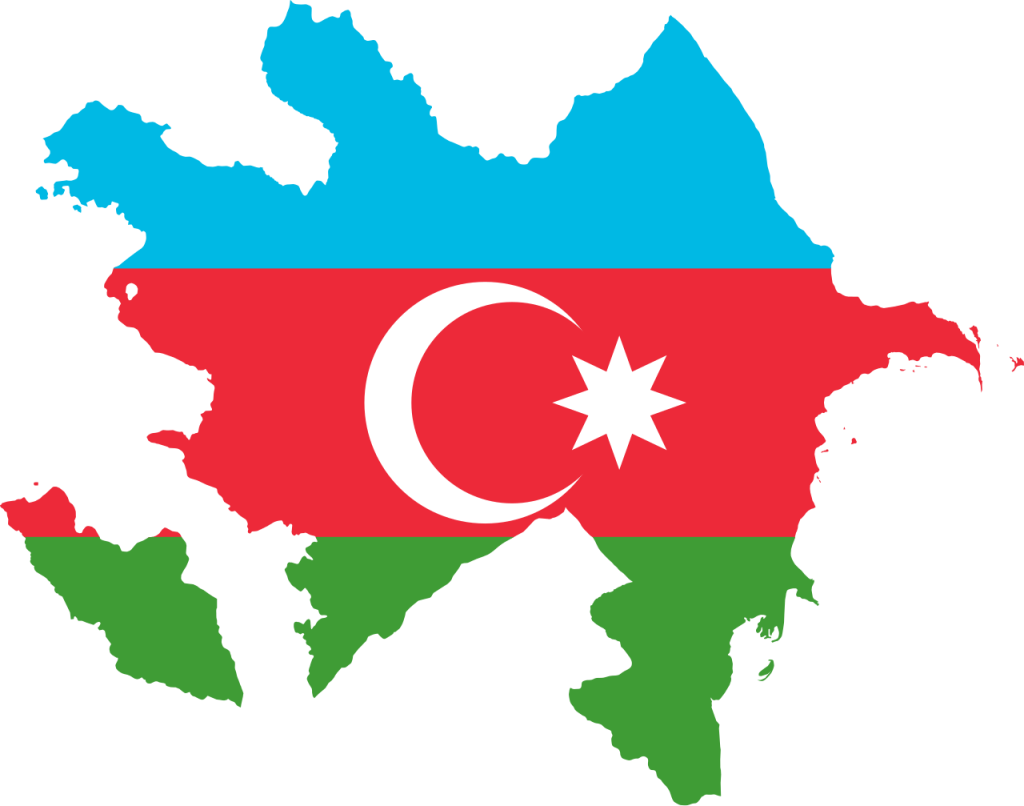
Azerbaijan
The Azerbaijani government has systematically eliminated forums for civil society and political opposition, stifling all critical debate. Civic and political activists, journalists, academics, lawyers and many others have been subjected to arrests, legal prosecution, and other forms of relentless state repression. Government critics abroad have not been spared. The authorities rely on transnational repression methods, ranging from digital surveillance to assassinations, to silence dissent beyond its borders.
This country spotlight is part of the Citizen Lab’s research on digital transnational repression. Digital transnational repression arises when governments use digital technologies to surveil, intimidate and silence exiled dissidents and diaspora communities. It is part of the broader practice of transnational repression, which refers to states using methods such as harassment, coercion-by-proxy, kidnapping, and assassination attempts, in order to control dissent outside their territories. Further research by the Citizen Lab on this issue – including research reports, country spotlights, stories of digital transnational repression, video interviews, and academic articles – is available here .
The Azerbaijani government is a consolidated autocracy with power concentrated in the hands of President Ilham Aliyev and his family.1 The government has systematically eliminated forums for civil society and political opposition, stifling all critical debate. Civic and political activists, journalists, academics, lawyers and many others have been subjected to arrests, legal prosecution, and other forms of relentless state repression. A series of draconian laws has curtailed the independence of nongovernmental organizations, including their access to foreign funding.2
Government critics abroad have not been spared. The authorities rely on transnational repression methods, ranging from digital surveillance to assassinations, to silence dissent beyond its borders. In European Union countries and other Western democracies, the Azerbaijani government leverages its oil and gas resources to routinely dismiss and deflect criticism of its poor human rights record.3 Furthermore, it has used costly gifts and public relation campaigns to lobby foreign policy makers and cultivate a positive image.4
The ongoing crackdown and pressure from the state forced many civil society activists and journalists to flee the country, establishing an Azerbaijani community of political exiles worldwide. In parallel with escalating repression inside the country, the government has also targeted human rights defenders and journalists abroad. The regime does not shy away from instigating assaults, assassination attempts, and forced renditions. In a speech from March 2024, pro-government Member of Parliament Zahid Oruc threatened a number of exiled journalists by name, accusing them of “informational terrorism” and calling for their “neutralization.” Given the government’s history of physical attacks against critics abroad, this did not come across as a hollow warning.5
In March 2021, government critic and blogger Mahammad Mirzali was stabbed with a knife in Nantes, France by a group of assailants who reportedly tried to cut off his tongue.6 The following year, French police disrupted an apparent murder plot against Mirzali. Another blogger, Orkan Aghayev, who lives in exile in Berlin, was also attacked and beaten twice by unknown men, likely sent by the Azerbaijani government.7 In September 2024, Vidadi Isgandarli, a government critic living as a political refugee in France, was attacked in his home and two days later succumbed to his injuries.8 In a case of cross-border abduction in May 2017, the journalist Afgan Mukhtarli, who investigated corruption among Azerbaijan’s ruling elite and lived in exile in Georgia, disappeared from Tbilisi only to show up again in Baku where he was sentenced to prison.9
Authorities frequently harass and threaten the families of exiles who continue their activism from abroad. In some cases, the state brought criminal charges against exiles’ family members with some condemned to prison terms for alleged drug possession. Relatives were also forced to renounce their relationship with these activists abroad to prevent retribution against themselves. Another method used by the government to cut the ties that connect emigrants to their homeland is to interrogate fellow activists and journalists inside the country. For example, contributors to the Berlin-based news media Meydan TV were questioned by the authorities and placed under a travel ban.10
To bolster its hold on power, the Azerbaijani regime has established a broad range of information controls.11 Censorship, information manipulation, and surveillance also serve the purposes of digital transnational repression. Websites of exiled journalists have been blocked or taken offline by DDoS attacks.12 The Facebook profiles of external media outlets such as Meydan TV, the Turan News Agency, and the Azerbaijani service for Radio Free Asia were hacked, causing a loss of content and followers.13 Exploiting a loophole in the platform’s functioning, actors tied to the ruling party set up thousands of inauthentic Facebook accounts. These were used to flood the social media posts of independent media and opposition members with pro-government comments, faking engagement, and distorting political debate.14
The Azerbaijani government is a customer of NSO Group’s Pegasus surveillance tool and other commercial spyware.15 State agents have used Pegasus to spy on civil society members in and outside the country.16 The regime frequently weaponizes private information, harvested through invasive surveillance, to threaten human rights activists and journalists – in particular women.
Sevinj Osmanqizi, an independent journalist living in the U.S., who we interviewed for our report, became the target of a smear campaign on pro-government television that relied on material likely obtained in a hacking and surveillance operation. In return for her reporting on corruption in the oil and gas industry, one program aired audio-recordings of her private communications with another exiled journalist, casting her as a traitor and liar. She was also threatened with the publication of private pictures and videos of her if she did not cease her work as a journalist.17
The Azerbaijani regime is notorious for the exploitation of intimate photos and videos to intimidate and publicly shame women dissidents and critics.18 These tactics have also been deployed against the sisters or spouses of men activists in order to put their family life under strain. In addition to being the victim of physical assaults, Mirzali was blackmailed with a video of intimate footage taken in his sister’s bedroom.19 In Azerbaijan’s culturally conservative society, such forms of character assassination and rumours about women transgressing social norms on chastity can create enormous pressures. Several targets of these campaigns attempted or contemplated suicide.20
In our interviews, respondents explained that they were systematically attacked by troll networks which flooded their social media profiles with hostile comments and sexualized insults. These groups are often tied to the youth branch of the ruling party and other state-affiliated organizations.21 Since the Second Nagorno-Karabakh War in 2020, the government has also used nationalist sentiments to stoke gendered online attacks against peace advocates and anyone taking a more nuanced position on the conflict with Armenia. Several respondents explained that coordinated defamation campaigns by patriotic trolls and pro-government media framed them as traitors, unleashing waves of harassment, abuse, and humiliation.
An exiled journalist pointed out that online trolls often worked hand in hand with state-controlled traditional media: “The government have their people on social media platforms who do the trolling online and in the newspapers who write those smear articles. They bring a distance between you and your audience by creating a fake reputation about you.” Such coordinated attacks pushed some participants to withdraw from social media. A journalist and peace activist exiled in Georgia who had experienced burnout and paranoia resulting from surveillance and harassment said she had drastically reduced her online presence: “I don’t write as much as I used to. I don’t have the patience anymore for being flooded by trolls and hate speech.”
- Sofie Bedford (2023), “Ring Out the Old and Ring in the Young: Upgrading Authoritarianism in Azerbaijan,” Baltic Worlds <https://uu.diva-portal.org/smash/get/diva2:1795429/FULLTEXT01.pdf>; Freedom House (2024), “Azerbaijan: Nations in Transit 2024 Country Report,” <https://freedomhouse.org/country/azerbaijan/nations-transit/2024>. ↩︎
- Human Rights Watch (2024), “We Try to Stay Invisible: Azerbaijan’s Escalating Crackdown on Critics and Civil Society,” (October 8) <https://www.hrw.org/report/2024/10/08/we-try-stay-invisible/azerbaijans-escalating-crackdown-critics-and-civil-society>. ↩︎
- European Parliament (2024), “Situation in Azerbaijan, Violation of Human Rights and International Law and Relations with Armenia,” <https://www.europarl.europa.eu/doceo/document/TA-10-2024-0029_EN.pdf>. ↩︎
- European Stability Initiative (undated), “Caviar Diplomacy: Why Every European Should Care,” <https://www.esiweb.org/proposals/caviar-diplomacy>. ↩︎
- Women Press Freedom (2024), “Azerbaijan: Member of Parliament Threatens Sevinj Osmanqizi and Fellow Exiled Journalists,” (March 5) <https://www.womeninjournalism.org/threats-all/azerbaijan-member-of-parliament-threatens-sevinj-osmanqizi-and-fellow-exiled-journalists>. ↩︎
- Committee to Protect Journalist (2021), “Exiled Azerbaijan Blogger Mahammad Mirzali Stabbed at Least 16 Times in Knife Attack in France,” (March 16) <https://cpj.org/2021/03/exiled-azerbaijani-blogger-mahammad-mirzali-stabbed-at-least-16-times-in-knife-attack-in-france/>. ↩︎
- U.S. Department of State (2022), “Azerbaijan 2022 Human Rights Report,” <https://www.state.gov/reports/2022-country-reports-on-human-rights-practices/azerbaijan/>. ↩︎
- Kelly Bloss and James Dowsett (2024), “Exiled Azerbaijan Activist Dies Following Brutal Attack,” Organized Crime and Corruption Reporting Project (October 2) <https://www.occrp.org/en/news/exiled-azerbaijani-activist-dies-following-brutal-attack>. ↩︎
- Dilshad Aliyarli Asgar Asgarov (2020), “Kidnapped, Blindfolded, Tossed in Jail: An Azerbaijani Reporter’s Exclusive Tale,” VOA (March 20) <https://www.voanews.com/a/press-freedom_kidnapped-blindfolded-tossed-jail-azerbaijani-reporters-exclusive-tale/6186152.html>. ↩︎
- Human Rights Watch (2016), “Harassed, Imprisoned, Exiled: Azerbaijan’s Continuing Crackdown on Government Critics, Lawyers, and Civil Society,” (October 20) <https://www.hrw.org/report/2016/10/20/harassed-imprisoned-exiled/azerbaijans-continuing-crackdown-government-critics>. ↩︎
- International Partnerships for Human Rights and Azerbaijan Internet Watch (2021), “Pulling the Plug: How Azerbaijan’s Government Combines Technology and Fear to Control the Internet,”
<https://www.iphronline.org/wp-content/uploads/2021/09/Pulling-the-Plug_report_updated_compressed-1.pdf>. ↩︎ - Arzu Geybulla and Hebib Muntezir (2018), “Azerbaijan’s Authoritarianism Goes Digital,” Open Democracy (February 2) <https://www.opendemocracy.net/en/odr/azerbaijans-authoritarianism-goes-digital/>. ↩︎
- Arzu Geybulla (2019), “Surveillance and Internet Disruption in Baku,” Coda Story (February 21) <https://www.codastory.com/authoritarian-tech/surveillance-and-internet-disruption-in-baku/>. ↩︎
- Julia Carrie Wong and Luke Harding (2021), “Facebook Isn’t Interested in Countries Like Ours: Azerbaijan Troll Network Returns Month After Ban,” The Guardian (April 13) <https://www.theguardian.com/technology/2021/apr/13/facebook-azerbaijan-ilham-aliyev>. ↩︎
- Natalia Krapiva, Giulio Coppi, and Rand (2023), “Hacking in a War Zone: Pegasus Spyware in the Azerbaijan-Armenia Conflict,” Access Now (May 25)
<https://www.accessnow.org/publication/armenia-spyware-victims-pegasus-hacking-in-war/>. ↩︎ - Miranda Patrucic and Kelly Bloss (2021), “Life in Azerbaijan’s Digital Autocracy: ‘They Want to be in Control of Everything,’” Organized Crime and Corruption Reporting Project (July 30) <https://www.occrp.org/en/the-pegasus-project/life-in-azerbaijans-digital-autocracy-they-want-to-be-in-control-of-everything>. ↩︎
- Ismail Djalilov (2019), “Trolls and Insults: Azerbaijan’s Exiled Media Increasingly Under Fire,” Index on Censorship (July 31) <https://www.indexoncensorship.org/2019/07/trolls-and-insults-azerbaijans-exiled-media-increasingly-under-fire>. ↩︎
- Kelly Bloss (2023), “How Revenge Porn is Used to Silence Dissidents in Azerbaijan,” Organized Crime and Corruption Reporting Project (April 4) <https://www.occrp.org/en/feature/how-revenge-porn-is-used-to-silence-dissidents-in-azerbaijan>. ↩︎
- Amnesty International (2021), “Azerbaijan: Gender-Based Reprisals Against Women Must Stop,” (May 12) <https://www.amnesty.org/en/wp-content/uploads/2021/05/EUR5541032021ENGLISH.pdf>. ↩︎
- Fatima Movlamli (2021), “Fatima Movlamli, Azerbaijani Activist,” Organized Crime and Corruption Reporting Project (July 18) <https://www.occrp.org/en/project/the-pegasus-project/fatima-movlamli-azerbaijani-activist>. ↩︎
- Arzu Geybulla (2016), “In the Crosshairs of Azerbaijan’s Patriotic Trolls,” Open Democracy (November 22) <https://www.opendemocracy.net/en/odr/azerbaijan-patriotic-trolls/>. ↩︎

